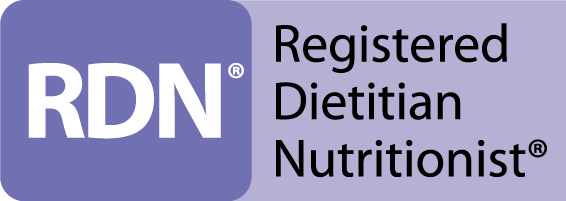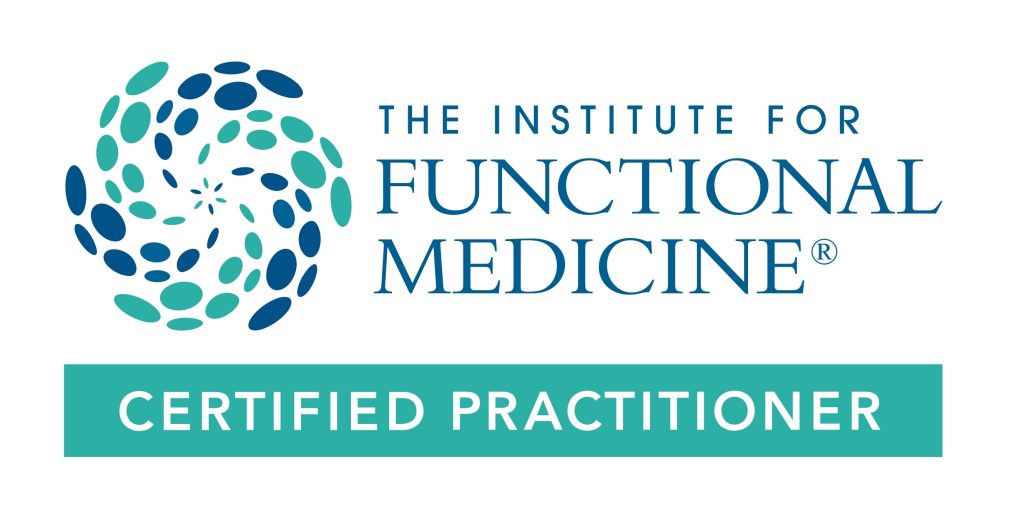Using Food and Lifestyle as Medicine
What a whirlwind year we have all been witnesses and part to. A year of unprecedented challenges that tested every possible aspect of our existence and well being, and has put to test our resilience to physical, mental and emotional challenges. An all around package filled with uncertainties and a lot of “what if” unanswered questions with so many possibilities. Year in which Mother Nature has put us in check, with a firm reminder not only of the importance of optimal physical health but emotional, social and spiritual well being. The importance of our tribe, how well and how kind we are to ourselves, our neighbor, our family and friends. That being said, it is within this framework that I see confirmation of the importance of personalized medicine, personalized nutrition, personalized lifestyle and why it may be where the future lies in this mode of therapies. Therapeutic approaches in which each of us is being treated as a whole and specifically customized with targeted medical, nutritional and lifestyle interventions, rather than just symptom alleviations of some kind.
Multiple studies have confirmed positive relationships between metabolic syndrome and adverse SARS-CoV-2 outcomes providing us with pattern and importance of addressing metabolic health and chronic inflammation as a form of prevention and laying the field so to speak for better outcomes post infection.
Metabolic health is defined as optimal levels of waist circumference (WC <102/88 cm for men/women), glucose (fasting glucose <100 mg/dL and hemoglobin A1c <5.7%), blood pressure (systolic <120 and diastolic <80 mmHg), triglycerides (<150 mg/dL), and high-density lipoprotein cholesterol (≥40/50 mg/dL for men/women), and not taking any related medication. 2009-2016 NHANES survey has showed that the prevalence of metabolic health in USA is staggering 12 %, meaning that less than 1/3 of the US normal weight adults are metabolically healthy.(1) That means that 88 % of adult US population deals and or is taking some form of medication to address at least one of the previously defined parameters of metabolic health.
CDC National Center for Health Statistics Data Brief has reported that the prevalence of obesity in 2017-2018 was 42.4 %. Obesity alone, being recognized as chronic low grade inflammatory state compromises the immune system, suppresses its efficacy and therefore jeopardizes the ability to fight infections, and it this case Covid-19 with full strength.
In relation to the relationship between obesity and SARS-CoV-2 outcomes, a retrospective cohort study on Covid-19 only hospitalized patients at SUNY Downstate Health Sciences University Hospital in New York confirmed the hypothesis that obesity is a risk factor for Covid-19 complications. Results revealed that overweight and obese patients who had Covid-19 were at increased risk for mortality (higher in males) and ventilation compared to those with normal BMI. Obesity did not affect the rates of AKI, ACI, and ARDS. (2)
Systemic and meta analysis of twenty articles (4062 patients) with objective to review evidence for risk factors of Covid-19 patients progressing to critical illness showed that elderly male patient with high BMI, high breathing rate and a combination of underlying diseases (hypertension- HTN, type 2 diabetes – DM 2, cardiovascular disease-CVD, and chronic obstructive pulmonary disease-COPD) were more likely to develop severe Covid-19 infections. (3).
Multiple studies have confirmed the risk of adverse Covid-19 outcomes and elevated blood glucose(hyperglycemia).
Retrospective Pisa Covid-19 study in Italy, reported hyperglycemia as an independent factor requiring careful evaluation and proper treatment, and was associated with severe prognosis in people hospitalized for COVID-19.(4) They concluded that at admission high blood sugar, uncontrolled with medications was associated with poor prognosis in people hospitalized with Covid -19. Authors acknowledged study limitations the relatively small size of participants (271) and an incomplete set for some inflammatory parameters.
In a multicenter retrospective cohort study of 312 hospitalized patients with Covid-19 showed positive associations between impaired fasting glucose (IFG) and diabetes at admission with risks of complications and mortality among patients with COVID-19. Used end points- events in the study were mechanical ventilation, ICU admission or death. (5)
Another study looked at associations between high blood pressure (hypertension-HTN), obesity, and diabetes individually and clustered as Metabolic Syndrome (MetSy) in correlation with Covid-19 outcomes in patients which were hospitalized in New Orleans during the peak of the outbreak from March30th-April 5th, 2020.(6) They found that MetSy was significantly associated with mortality, ICU and ARDS(Acute respiratory distress syndrome when compared with non MetSy patients. Multivariable analysis showed no association of HTN, obesity and DM with mortality. Obesity was associated with higher ICU, ARDS, and invasive mechanical ventilation (IMV); Diabetes with ICU and IMV, while hypertension was not significantly associated with any outcome.
That being said it is of crucial importance we start being more aware and acknowledge the importance of our health, and well being on daily basis. Time to understand that being healthy does not entail just absence of disease and worrisome symptoms, but rather a state of well being on physiological, mental, and social scale. In this time of pandemic there are multiple approaches and interventions we can do form the comfort of our home to help our bodies recover from the stress of daily living. Each and every one of us must be aware of where we fall short in our optimal well being and start from there It is a project of health if you will, rather than just a quick fix. It might be we don’t sleep well or long enough or wake up restful. Or maybe we do not include movement and exercise daily, or weekly, or we eat out too often, and maybe just noticed that there is not enough color or variety of foods in our plates. All these possible variables, and behaviors add up over time, add more stress to our body and physiological machinery that keeps us going, that eventually tire our systems, and might result in the symptoms that are interfering our daily lives and optimal functioning, and or are just the fuel that keeps on adding to some of our chronic illnesses we have been dealing and managing so far.
What if we change our attitude, mindset regarding health, and well being? What if the strategy of controlling symptoms of chronic illness is not sufficient enough for living optimal life with vibrant health and social functioning? What if we by changing our mindset on what chronic disease and symptom management means to us and how it limits us in our daily lives, we shift from management of symptoms to hopefully, possibly reversing symptoms when and if possible resolution of symptoms by looking, and removing root causes of illness while using food and lifestyle as medicine in addition to disease management by medical practitioners.
As a functional dietitian, I thrive on using food and lifestyle as medicine. Below are some tips and general recommendations each and every one of us can consider in order to optimize our health and well being in these unprecedented times.
- Contact your health care practitioner: If you are dealing with symptoms of abnormal levels of blood glucose, lipids, and high blood pressure please make sure you consult with your primary care physician to assure proper interventions are being taken. If you feel ready to invest more seriously into your project of health and well being, venture out and consider consulting with your local functional medicine practitioner to address your health using more personalized therapeutic approach.
- Sleep Hygiene: In these times of rushing to work, to the grocery store, to soccer practice all the while we feel there is not enough time in the day to achieve all we want to, the first thing we sacrifice is our sleep. Ironically it might be the worst tradeoff we do, in terms of health because sleep is crucial part of our project to health in the manner of achieving and maintaining. Multiple research studies have linked adequate and restful sleep with better physiological functions such as mood, cognition, and immunity. Sleep deprivation has been associated with elevation in inflammatory markers ( i.e CRp),increase in stress hormone -cortisol(7) which in turn puts extra stress and strain to our immunity. In the year of “immunity this, immunity that”, as a booster, sleep might be the most cost effective, yet important intervention that does not require deep pockets and yet makes a difference. Trying to figure out some routine before sleep might be a good place to start.
- Movement & Physical Activity: Intentional movement and targeted physical activity Is something each and every single one of us most definitely can do more off. Using every opportunity to choose movement over sedentary behavior, walking over lying down is the right way to go. Before you start an intensity level make sure if you need to get a clearance from your medical provider for any type of moderate or vigorous activities, assessment of balance, fall and CVD risk. Key to success is to start slow, with setting realistic and achievable goals. So, maybe start by walking 10-15 minutes for 3 days- 5 days /week. See how you feel, and then add 10 or 15 more minutes to the routine and stick to it. >30 minutes /day of physical activity may add in reduction in systolic blood pressure (SBP) 4-9 mmHg and may decrease risk of cardiac events by 30-40%. Physical activity is also associated with better glucose uptake indirectly aiding in better blood glucose control, increases endorphins, reduces anxiety and improves sleep.
- Diet and Nutrition: Start practicing Mindful Intuitive Eating: Learn to listen to your body cues. Eat when you are hungry, mindfully and avoid overeating. Whether you choose to follow Mediterranean eating patterns-> known to be the gold standard of heart healthy eating patterns, ketogenic or any other diet that appeals to you, please try to make sure you do so under the guidance of trained nutrition professionals to assure proper use of therapeutic foods to aid and correct your nutrition imbalances, avoid deficiencies, and assure for adequate control of ketosis if needed be. Some of them are even being covered by your health care insurance. So it might be only a matter of just asking the right questions to find what services you will benefit from.
Use real whole foods and remember simple is better, variety and color even more so, moderation is key. Plant based foods with high phytonutrient components and nutrient density (vegetables, fruits, nuts, seeds, olive oil, legumes, and whole unprocessed grains), fish, pasture raised meats and eggs. Grocery shop by walking around the supermarket, avoid the middle aisle which contains prepackaged, premade, full with additives foods of any kind. Avoid eating food and food like items with names in the ingredient list you cannot pronounce.
- Healthy Weight and Weight Loss: Abdominal, visceral obesity as mentioned earlier is one of the parameters that define metabolic health and is most relevant to blood pressure (BP). Given the statistics that approximately more than 40 %of US adults deal with overweight, obesity it is I would add another epidemic not so well discussed about. In this context, body fat reduction, especially around the belly area might be more beneficial that weight reduction. So, achieving optimal healthy weight proportionally might be the right way to go, not just decreasing the pounds on the scale. In regards to blood pressure, each pound lost is associated with 1 mmHg drop in systolic and diastolic BP; for every 5 % weight loss SBP may be lowered by 3 points; and for 10 kg (22 lbs) weight loss, expected reduction in SBP might be up to 20 mmHg. So, finding a weight loss program and partnership with your dietitians that will work specifically for you, teach you how to get rid of your extra pounds, and most importantly teach you how to keep them off avoiding the notorious yo-yo dieting might be an investment you should consider. It is an important fact to be aware that whatever weight loss strategy and diet worked for your friend, cousin or colleague might not be suitable for your physiology and body needs. So, to avoid utter disappointment without setting yourself up for failure from the very beginning, finding a provider that will offer personalized weight loss program, dietary therapeutic patterns and lifestyle strategies might be just the thing we will all need. Personalized medicine, nutrition and lifestyle strategies might be the key to healthy us.
- Identify Address and Reduce Stress: Stress can cause coronary vasoconstriction and increased stickiness of the platelets that ultimately promotes clot formation. Also affects immunity and our ability to fight infections. And so, identifying stressors you have been under lately and what stress management techniques have or have not been using might be initial place to start addressing. Some of the many stress reducing techniques, include but are not limiting to different breathing techniques such as belly /diaphragmatic breathing, or inhale through the nose while your belly rises, and exhale through the mouth. Those of us that have practiced yoga are well familiar with these. Practicing mindfulness and awareness of the moment, listening to music, singing, are just some of the many interventions we might use to address our stress. The right questions is rather figuring out which one works best for you, and giving yourself time to get used to it.
In conclusion, when one realizes that only 12.5 % of US adults are metabolically healthy, the well known, and maybe less talked about epidemic of obesity on the US where it has been estimated that 2/3 of US adults are overweight-> meaning 3 out of 4 people are struggling with extra weight and all that comes with it , then maybe, just maybe this pandemic is not just about the virus and its ability to affect us on so many different ways, but also, a sober realization of how unhealthy, unbalanced we have become so that our bodies has lost the resilience and ability to properly fight foreign antigens. I believe I am not overstepping any toes and scope of practices by promoting healthy lifestyle and dietary patterns as one of the, I would say basic natural ways, to build and power back up the powerful machinery and work of art our bodies actually are, lay the ground so to speak, so they may do what they were originally designed to do. Strive for balance, homeostasis, and for optimal wellness and functioning, whether physical or mental . It is safe to assume that reaching this state of optimal health and well being, is not one type of intervention, change of behavior, type of breakfast we decide to have for the next couple of weeks, or eat this or that type of superfood, but rather a project of health, personalized, and long lasting that will encompass almost all aspects of our being, daily living and choices we make.
Bid you good health
Biljana Sofronijoska Rece RDN, LD, IFMCP
This information is intended for informational purposes only. It is not supposed to be interpreted as specific medical advice. Regarding therapies, diagnosis and or health conditions please consult with your qualified healthcare provider.
References:
- Araújo J, Cai J, Stevens J. Prevalence of Optimal Metabolic Health in American Adults: National Health and Nutrition Examination Survey 2009-2016. Metab Syndr Relat Disord. 2019;17(1):46-52. doi:10.1089/met.2018.0105
- Nakeshbandi, Mohamed et al. “The impact of obesity on COVID-19 complications: a retrospective cohort study.” International journal of obesity (2005) 44,9 (2020): 1832-1837. doi:10.1038/s41366-020-0648-x
- Xu, Lizhen et al. “Risk factors for 2019 novel coronavirus disease (COVID-19) patients progressing to critical illness: a systematic review and meta-analysis.” Aging 12,12 (2020): 12410-12421. doi:10.18632/aging.103383
- Coppelli, Alberto et al. “Hyperglycemia at Hospital Admission Is Associated With Severity of the Prognosis in Patients Hospitalized for COVID-19: The Pisa COVID-19 Study.” Diabetes care 43,10 (2020): 2345-2348. doi:10.2337/dc20-1380
- Zhang, Jiaoyue et al. “Impaired Fasting Glucose and Diabetes Are Related to Higher Risks of Complications and Mortality Among Patients With Coronavirus Disease 2019.” Frontiers in endocrinology 11 525. 10 Jul. 2020, doi:10.3389/fendo.2020.00525
- John Xie, Yuanhao Zu, Ala Alkhatib, Thaidan T. Pham, Frances Gill, Albert Jang, Stella Radosta, Gerard Chaaya, Leann Myers, Jerry S. Zifodya, Christine M. Bojanowski, Nassir F. Marrouche, Franck Mauvais-Jarvis, Joshua L. Denson. Metabolic Syndrome and COVID-19 Mortality Among Adult Black Patients in New Orleans. Diabetes Care, August 2020; DOI: 2337/dc20-1714
- Wright, Kenneth P Jr et al. “Influence of sleep deprivation and circadian misalignment on cortisol, inflammatory markers, and cytokine balance.” Brain, behavior, and immunity 47 (2015): 24-34. doi:10.1016/j.bbi.2015.01.004








